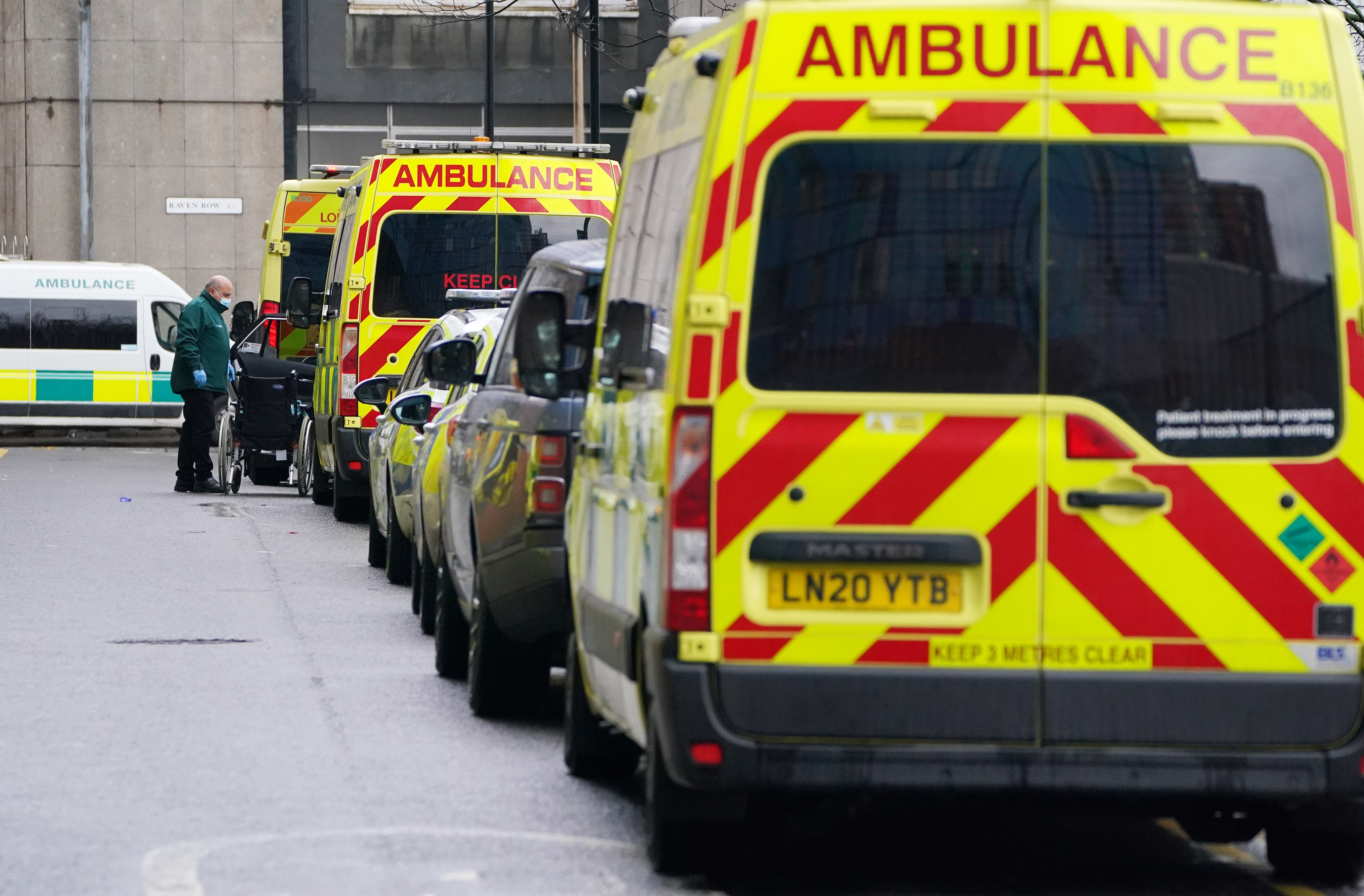Covid-19 intensive care admissions rise as patient numbers near previous peak
Experts warn the numbers are likely to continue to increase over the next few weeks.

Admissions to intensive care units in England of people testing positive for Covid-19 have risen for the second week in a row and are now at levels last seen in mid-April, new data shows.
Total hospital admissions are also continuing to increase, with patient levels nearing the peak reached during the previous wave of infections in the spring.
Health experts have warned the numbers are likely to carry on rising throughout July, driven by a “substantial amount” of waning immunity among older people.
The figures are the latest evidence of how the virus is becoming more prevalent, with the potential to add further pressure on hospital staff already trying to clear a record backlog of operations.
The current wave is being driven by the variants Omicron BA.4 and BA.5, which are now the dominant strains of Covid-19 in the UK and are more transmissible than the BA.2 variant that caused infection levels to reach an all-time high earlier in the year.
The rate of hospital admissions in England of people testing positive for Covid-19 stood at 14.6 per 100,000 last week, up from 11.1 the previous week, according to the UK Health Security Agency (UKHSA).
Admissions to intensive care units (ICU) stood at 0.4 per 100,000, up from 0.3.
Both sets of figures are the highest since the middle of April.
Hospital admissions remain highest among over-85s, at 126.2 per 100,000 people, followed by 75 to 84-year-olds (59.3) and 65 to 74-year-olds (24.0).
ICU admissions are highest for people aged 75 to 84, at 1.2 per 100,000.
Dr Mary Ramsay, UKHSA director of clinical programmes, said: “We continue to see Covid-19 case rates and hospitalisations rise in all age groups, with the largest increases in hospitalisations and ICU admissions in those aged 75 and older.
“There is likely to be a substantial amount of waning immunity in older people who have not taken up the booster on schedule, so we can expect these rises to continue over the coming weeks and throughout July.
“Vaccination remains the best defence against severe disease and we urge anyone who is eligible for the spring booster to take it up.”
All over-75s in the UK have been offered a “spring booster”, available at least three months after their most recent jab, to ensure they continue to receive the maximum possible protection.
Around one in six over-75s (16.0%) have not received any doses of Covid-19 vaccine in the last six months, putting them more at risk of severe disease.
Separate research published on Thursday by the UKHSA based on preliminary analysis of recent infections showed there was “not a large difference in vaccine effectiveness against BA.4 or BA.5 as compared to BA.2”.
This suggests “protection conferred by the vaccines likely remains comparable to that observed previously”, with doses helping to reduce the likelihood of serious illness and death.
The total number of people in hospital in England who have tested positive for Covid-19 currently stands at 11,878, up 33% week-on-week.
Patient numbers are now around three-quarters of the peak reached during the BA.2 wave, though remain well below levels seen in the early part of the pandemic.
Around six in 10 patients who test positive for Covid-19 are being treated primarily for something else rather than the virus, but still need to be kept isolated from other patients, putting extra pressure on hospital staff and resources.
The latest estimates of the number of people infected with Covid-19 across the UK will be published on Friday by the Office for National Statistics and are expected to show another increase.
A total of 2.3 million people in private households were likely to have had the virus in the week to June 24, the highest estimate since late April but still some way below the record high of 4.9 million at the peak of the Omicron BA.2 wave.
Bookmark popover
Removed from bookmarks